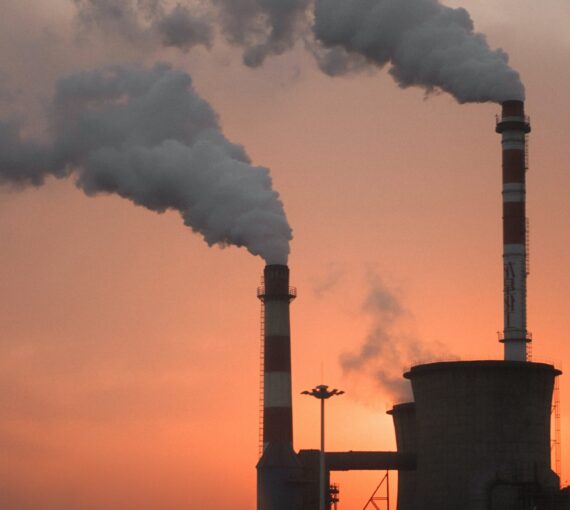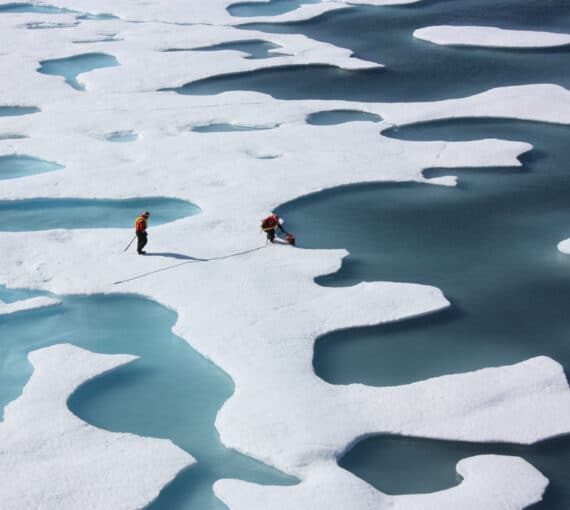
Action is the best antidote to despair. (Photo: Faris Mohammed via Unsplash)
After a winter break that didn’t feel much like winter in many places, many people are stepping into 2024 with a combination of reluctance, hope and trepidation. Last year was challenging, with many crises colliding.
A devastatingly destructive and widespread wildfire season brought climate change up close while fossil fuel companies and climate-denying politicians continued to lie, greenwash and mislead the public. Skyrocketing housing, food and energy costs put even mid-level income earners on the brink while billionaires hoarded more and oil and gas companies made record profits and drove up inflation. Wars, injustice, polarization and political strife challenged all who care deeply about people and the planet.
Was 2023 all bad news? Is the planet doomed?
Absolutely not. There are plenty of good news stories to celebrate.
At the UN climate conference in Dubai, nations agreed for the first time to transition away from fossil fuels. Also in Dubai, climate reparations finally became a reality with an international loss and damage fund to assist nations most vulnerable and affected.
Solar-power investment is set to exceed investment in oil and gas for the first time in history and the International Energy Agency declared the rise of renewables “unstoppable.” Deforestation in the Amazon has slowed. Nearly 200 countries signed a legally binding High Seas Treaty. The list goes on. You can see a few of David Suzuki Foundation’s wins for 2023 in this Instagram carousel.
Why do things feel so bleak then? If you woke up one morning feeling energetic and strong but you had disconcerting heart palpitations, it would be natural to focus on your heart since it’s the problem that needs addressing. Our desire to improve life can sometimes lead us to focus on the negative.
Can we turn concern and grief into something positive?
Yes! Adam Grant, organizational psychologist and author said “the best cure for feeling helpless is being helpful.” There will be many opportunities to take action this year and be a part of a movement working to protect the planet and make the world healthier, more equitable and even joyful.
You can start by signing this petition calling for bold and urgent climate action and ensuring that you’re opted in to receive messages about opportunities to make a difference.
“the best cure for feeling helpless is being helpful.” There will be many opportunities to take action this year and be a part of a movement working to protect the planet and make the world healthier, more equitable and even joyful.
What climate action are we focusing on in 2024?
Reducing emissions from oil and gas
A report from Canada’s Commissioner for the Environment and Sustainable Development identified oil and gas emissions — Canada’s largest and fastest-growing source — as the main reason we’re failing to meet climate targets.
The federal government has been slow to finalize the policy that is critical to reducing these emissions, promised two years ago, as it faces resistance from recalcitrant provinces, politicians and the oil and gas lobby.
The government released a framework for the policy in December 2023 and is inviting public comment on it until February 5. Until this policy is in place, we’ll be advocating for an accelerated timeline for emissions reductions, removal of loopholes and escalated ambition. Sign now to hold Big Oil accountable for its climate pollution.
We’re also working toward strengthening a methane regulation to make the oil and gas sector reduce methane emissions immediately. Methane is a potent greenhouse gas with more than 80 times the climate warming impact of CO2 over 20 years, so reducing these emissions is a top climate solution for quick results.
Stepping into the renewable future with 100 per cent clean electricity
The federal government is in the final stages of writing policy to shift Canada’s electricity grid to cleaner, greener forms of electricity.
We are closer than ever to winning 100 per cent zero-emissions electricity throughout Canada by 2035. If we seize this opportunity, we could:
- improve overall energy affordability and create thousands of new jobs
- increase energy security and community resilience
- modernize our electricity system and join the global shift to renewable electricity
- be closer than ever to meeting our climate targets
You can sign this petition now to say YES to affordable, secure, renewable power by 2035.
Addressing the affordability and climate crises together
Many climate solutions also make life more affordable. One is the transition to renewable electricity. But the cheapest energy is the energy you don’t use! All levels of governments can provide support to low-income families struggling with energy costs by offering free heat pumps and energy-efficiency retrofits. They can also facilitate affordable access for all households to energy efficiency, heat pumps and home electrification.
Another way to confront the cost of living and climate crises is by implementing a windfall profit tax on oil and gas companies. The fossil fuel industry has exacerbated the affordability crisis, contributing to higher inflation with price-gouging while making obscene profits. A Parliamentary Budget Office report shows that a 15 per cent windfall profit tax on oil and gas companies could generate $4.2 billion that could be used to fund investments to make life more affordable while helping address the climate crisis.
We will be advocating for a windfall profit tax on oil and gas companies to be included in the spring 2024 federal budget.

Exposing the oil industry’s lies and greenwashing
For the past half century, the oil and gas industry has invested billions of dollars in dishonest, deceptive marketing campaigns, designed to sow doubt in climate science and convince people that fossil fuels have a place in a net-zero future. They don’t. Fossil fuels are the leading cause of climate change and no amount of deceptive marketing will change that.
That’s why we’re calling out Big Oil’s lies and helping citizens spot the deception and stop oil and gas industry misinformation. Make sure to join our email community and follow us on social for more content that will expose the lies!
Stopping natural gas/LNG infrastructure expansion
“Natural gas” is a misleading marketing term. Most liquefied natural gas is fracked using millions of litres of water and toxic chemicals, and emissions are massive and potent.
Our work this year on LNG is focused on British Columbia, where corporations want to massively increase fracking in the northeast — the sixth-largest fossil fuel reserve in the world and Canada’s biggest carbon bomb. In 2022, Quebec made the bold move to ban oil and gas development. We’re taking learnings from that campaign to the B.C. context.
We’re working on multiple fronts this year to argue that LNG impedes the renewable energy transition by locking up investment and locking in emissions. During this provincial election year, we’re using science and facts to convince governments not to allow any further development of LNG in the midst of the climate crisis.
Putting an end to fossil fuels subsidies and financing
Taxpayer handouts to the fossil fuel industry have helped fuel the climate crisis and delay the transition to renewable energy. The federal government gives billions of dollars in subsidies, tax breaks and financing to some of the richest companies in the world while they wreak havoc on the climate.
Canada has taken steps to end inefficient subsidies and public financing of foreign fossil fuel projects but we still need to see it finally make good on its promise to end domestic subsidies, including for carbon capture and storage and fossil fuel–derived hydrogen (which amounted to over $12 billion in 2023). This move will free up taxpayer money to invest in the clean energy transition.
We are calling on the environment and climate change minister to end all fossil fuel subsidies and financing in the upcoming federal budget.
Will you join us?
We will have many opportunities for you to get involved in various campaigns and events this year.
No action alone will “solve” climate change. But since every fraction of a degree of warming means more destructive and dire impacts, any amount of emissions reductions will help avoid these consequences. Anything you can do will help. Try not to get overwhelmed by trying to solve it all. Here are 10 things you can do about climate change. Start with just one.


